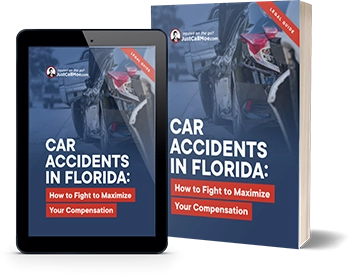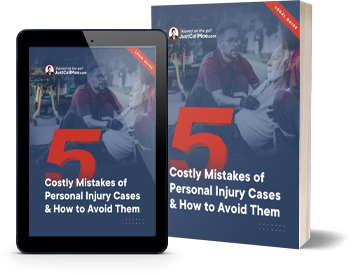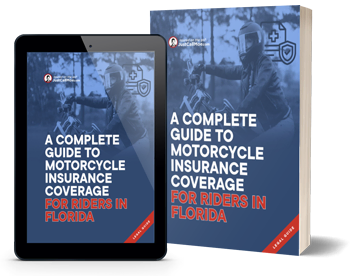Parking lots might seem less risky than major roadways, but accidents happen in them all the time — often because drivers are unsure about who has the right of way. In Florida, right-of-way rules still apply in parking lots, even though they’re usually private property. Understanding these rules is essential for staying safe, avoiding crashes, and knowing what to do if you’re involved in a fender bender or a pedestrian incident.
At JustCallMoe, our experienced Orlando car accident lawyers help clients across Florida understand their rights and recover compensation after parking lot accidents. Here’s what you need to know if you’re wondering who has the right of way in a parking lot in Florida.
Are Parking Lots Governed by Traffic Laws in Florida?
Yes, they are. Even though most parking lots are privately owned, Florida drivers are still expected to follow basic traffic laws while on the property. That includes stopping at posted stop signs, yielding where appropriate, obeying one-way signs, and driving at a safe and reasonable speed.
These expectations are based on general traffic rules under Chapter 316 of the Florida Statutes, which covers the state’s Uniform Traffic Control Laws. While the law doesn’t have a section that deals exclusively with parking lots, it does establish the duty for all drivers to operate safely and yield the right of way when required.
Law enforcement may not always respond to minor crashes or assign fault unless there are injuries or serious damage. That’s why it’s so important to understand how fault is determined and what steps to take after an accident.
Common Right-of-Way Rules in Parking Lots
When it comes to right of way in parking lots, here are the general rules most Florida drivers should follow:
Pedestrians have the right of way – Always yield to people walking, especially in crosswalks, near store entrances, or when pedestrians are already crossing. Drivers should remain alert and give pedestrians ample space to move safely.
Vehicles in through lanes have the right of way – A through lane is a main driving lane that runs around or through the lot. Drivers navigating through lanes have the right of way over vehicles pulling out of parking spaces or feeder lanes.
Drivers exiting a parking space must yield – If you’re backing out of a spot, the responsibility is on you to make sure the coast is clear. Drivers pulling through lanes are not required to stop for someone reversing unless there’s an imminent hazard.
Entering traffic must yield – If you’re entering the parking lot from a road or feeder lane, you must yield to traffic already in the lot and to any pedestrians crossing.
Obey all posted signs and markings – Stop signs, yield signs, arrows, and speed bumps are there for a reason. Even if the lot is private, drivers are expected to follow signage as they would on any public street.
Determining Fault in a Parking Lot Accident
Figuring out who’s at fault after a parking lot crash depends on the exact circumstances. Unlike typical roadway accidents, these often involve low-speed impacts, complex angles, or shared blame. Here are a few examples of how fault might be assigned:
Two drivers backing out at the same time – Both may share fault unless it’s clear one had already begun moving first or had better visibility.
A car backing out hits a moving vehicle – The driver backing out is usually at fault for failing to yield.
Two cars collide while pulling into the same spot – This could be a shared fault depending on positioning and visibility, but typically, the driver turning left into a space must yield to the one approaching from the right.
Failure to stop at a sign – If one driver ignores a stop or yield sign in the lot, they’re typically at fault for any resulting crash.
A pedestrian is hit – In most cases, the driver will be at fault unless the pedestrian acted unpredictably or darted into the path of a moving vehicle.
Every situation is different. That’s why documenting the accident scene and gathering witness info is crucial when filing a claim or report.
Tips to Avoid Parking Lot Accidents
Avoiding confusion and collisions starts with staying alert and driving defensively. Here are a few practical tips:
Drive slowly and watch for movement – Speed limits in parking lots are low for a reason. Drive cautiously and be prepared to stop quickly.
Yield to pedestrians — always – Never assume someone sees you. Make eye contact when possible, and give people time to cross safely.
Use your signals – Whether you’re turning into a space or navigating around other vehicles, using your blinkers helps everyone understand your intentions.
Don’t rely solely on backup cameras – Mirrors and shoulder checks are still essential. Cameras can miss small objects or low-profile vehicles.
Avoid distractions – Parking lots demand your full attention. Stay off your phone, even when driving slowly.
What to Do After a Parking Lot Accident in Florida
If you’re involved in a parking lot crash, here’s what to do:
- Check for injuries and call 911 if needed
- Exchange contact and insurance info with the other driver
- Take photos of the damage, the surroundings, and any signage or skid marks
- Talk to any witnesses who saw the crash happen
- Report the incident to your insurance company
- Request a police report if officers respond
- Contact a personal injury lawyer — especially if you’re injured or the other party disputes fault
Even though parking lot crashes often happen at low speeds, injuries like whiplash, back pain, and concussions are common — especially if you were walking or riding as a passenger.
Frequently Asked Questions About Parking Lot Right-of-Way in Florida
Who is at fault if someone backs into you in a parking lot?
In most cases, the driver backing out of the space is at fault. They have a duty to make sure the area is clear before reversing. However, if both drivers are backing out at the same time and collide, fault could be shared.
Can I file a police report for a parking lot accident?
Yes. If there are injuries or significant damage, call the police. In minor cases, they may not respond, but you can still file a report online or request assistance for documentation purposes.
Will insurance cover a parking lot accident in Florida?
Yes, but how much is covered depends on your policy and who is at fault. If you were injured, your Personal Injury Protection (PIP) may apply, but some scenarios — especially involving pedestrians or private property — may require a liability claim against the other driver.
Can a pedestrian be at fault in a parking lot accident?
It’s rare but possible. If a pedestrian darts out unexpectedly or isn’t in a crosswalk, they may be found partially at fault. Still, drivers are expected to use extreme caution around pedestrians.
Get Legal Help for a Parking Lot Accident in Florida
Fault in parking lot accidents isn’t always straightforward — and insurance companies often try to deny or minimize claims by arguing that both parties were at fault or that no laws were broken.
If you’ve been injured in a parking lot accident or hit by a vehicle while walking, you have legal rights.
Moe DeWitt and the team at JustCallMoe are here to help you understand your options, deal with insurance adjusters, and fight for the compensation you deserve.
Call (866) 225-5663 today for a free consultation, or fill out our quick form. You don’t pay unless we win.
Confused about who had the right of way? JustCallMoe. We’ll help make it right.

 (866) 225-5663
(866) 225-5663




 100% Secure and Confidential
100% Secure and Confidential